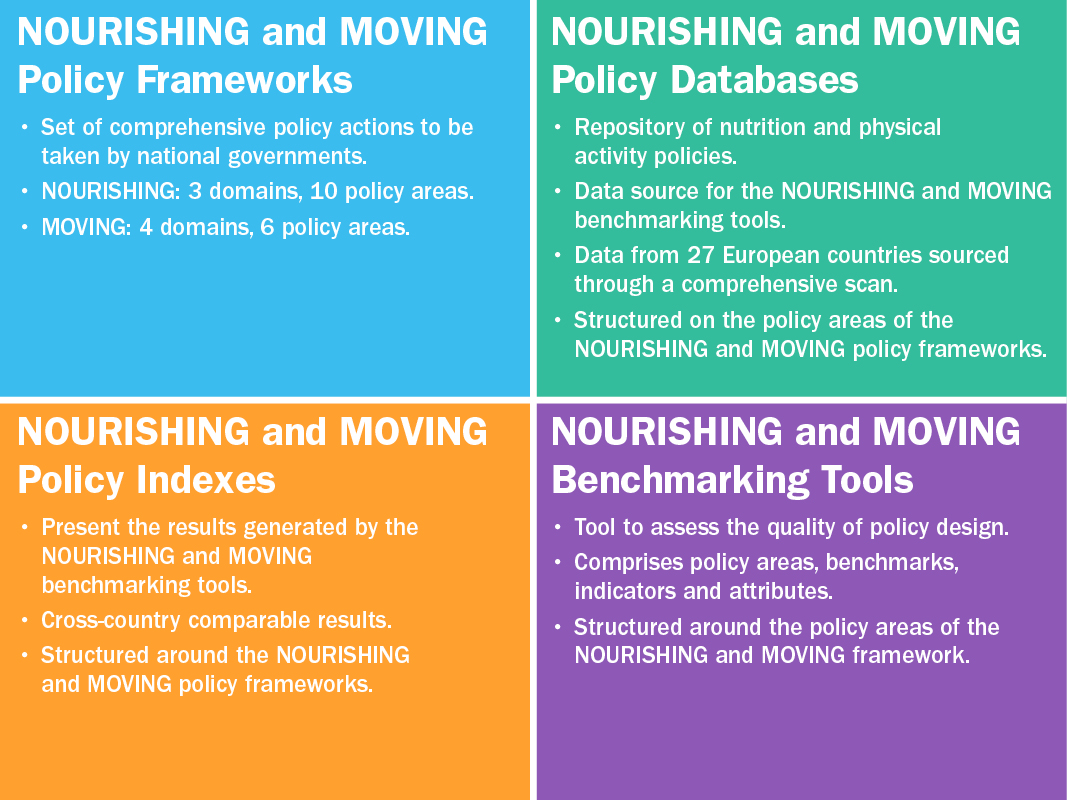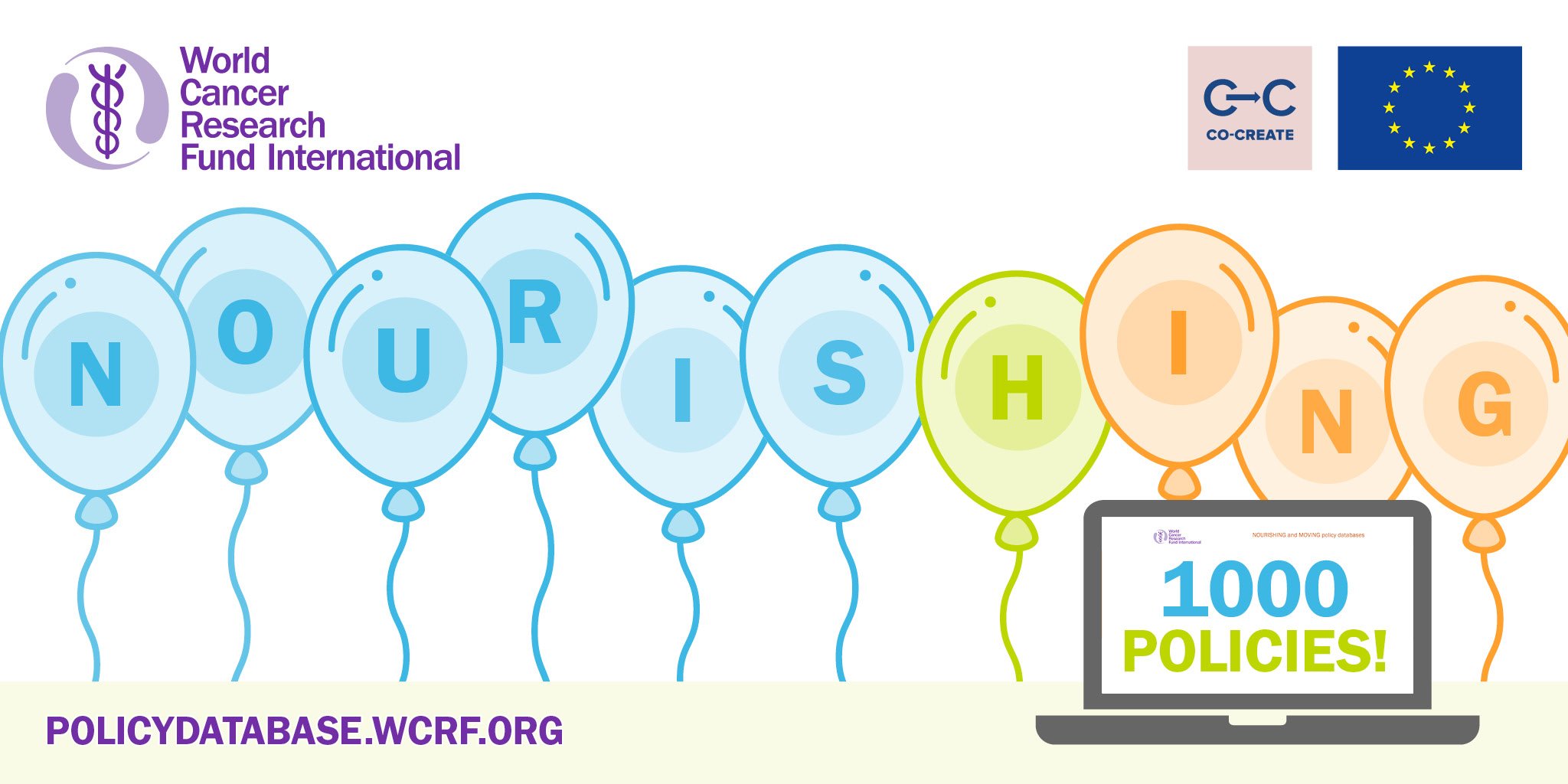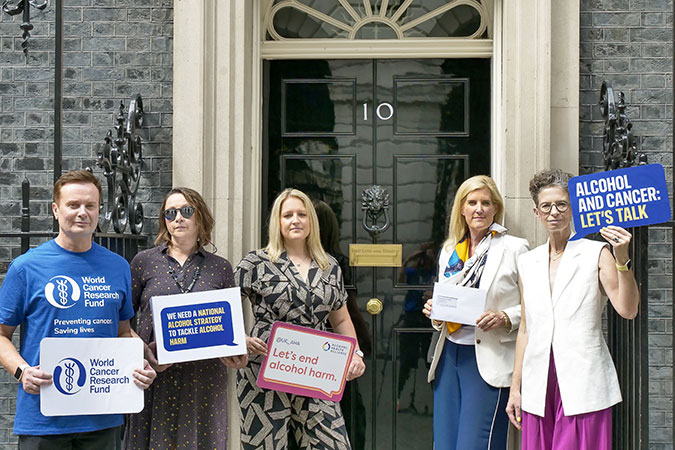 We recently added the 1,000th nutrition policy to our NOURISHING database of policies that governments around the world have implemented to promote healthy diets and combat obesity. To celebrate this milestone, our Policy and Public Affairs Officer, Jennifer O’Mara, explores what the database reveals about government action on food and nutrition policies, and what World Cancer Research Fund International are working on next.
We recently added the 1,000th nutrition policy to our NOURISHING database of policies that governments around the world have implemented to promote healthy diets and combat obesity. To celebrate this milestone, our Policy and Public Affairs Officer, Jennifer O’Mara, explores what the database reveals about government action on food and nutrition policies, and what World Cancer Research Fund International are working on next.
It was an exciting day when we added the Stop Salt National Salt Reduction Programme from Hungary as this was the 1,000th policy action to be uploaded to the NOURISHING database. It prompted us to reflect on the journey we’ve been on since the database was first developed in 2015 as a tool to identify what countries are doing to promote healthy diets, address obesity and support the prevention of cancer and other non-communicable diseases (NCDs).
Since its launch, we have massively expanded the database through our work on the EU-funded CO-CREATE project, where we are responsible for developing policy tools to identify, monitor and assess diet-related and physical policy actions across Europe. We built a sibling database of physical activity policy actions – called MOVING – and both databases now house a huge repository of information related to nutrition and physical activity policies
Gone are the days when we updated the NOURISHING database only 3 times a year with around 20 policies at a time. We now continually update it with policy actions as we find them (and alert politicians, policymakers, NGOS and civil society organisations to new entries through our regular newsletter). A core focus of our work in the CO-CREATE project has been putting together a comprehensive picture of policy actions in Europe to assess the status of government action across the region.
Europe-wide view of nutrition policies

We have systematically searched 27 European countries across the 10 policy areas of the NOURISHING framework (which provides the search scope and structure for the database) to create full country datasets. Outside Europe, we add policy actions where and when we find them, but we don’t systematically search all countries because of limited resources.
So why are these European datasets important? Well, by being systematic, we can then see what policies a country has in place and, more importantly, what is missing. This can then underpin advocacy to encourage governments to take more action.
The NOURISHING database now contains more than 1,000 implemented nutrition policies. Some areas contain many more policies than others. The policy area on Nutrient label standards and regulations on the use of claims and implied food claims contains the most policies, with 226 identified. Only 30 policy actions have been identified in the policy area of Set incentives and rules to create a healthy retail and food service environment, followed closely by the policy area Nutrition advice and counselling in health care settings. Across the 27 countries in Europe, we can see that only Portugal is taking action across all policy areas of the NOURISHING framework. This is encouraging as it shows the Portuguese government is taking a comprehensive approach to improving the diets of its people.
Most countries we’ve scanned in Europe are not taking a comprehensive approach to nutrition, including Croatia, Denmark, Germany and Greece. This shows a discouraging lack of commitment from governments on nutrition policy both at a national and European level. Countries such as Norway and the Netherlands almost take a comprehensive approach but fall short with a lack of policies across all areas of the NOURISHING framework.
Benchmarking progress in Europe

In the exciting next phase for NOURISHING, we are developing a suite of tools beyond the database and framework. This reconceptualisation will encapsulate all the different elements of the framework, database and soon to be released benchmarking tool and policy index. We will be doing the same for MOVING, which will also soon have a benchmarking tool and policy index to evaluate physical activity policy across Europe.
Our new benchmarking tool will evaluate the design of government implemented nutrition policy actions in Europe from the NOURISHING database. We have developed benchmarks, indicators and scores structured around the policy areas of the NOURISHING framework. This will evaluate the strength of policy design across Europe.
27 European country results from the benchmarking tool will be presented in a policy index and launched in 2023. Results will be displayed using colours and each colour will correlate to a ranking on good or poor policy design. In doing this, it allows comparisons between countries as well as between policy areas. We also hope to publish some scientific papers soon about the development of these tools.
Before long, we will be able to assess not only which countries are taking comprehensive action across all 10 areas of our NOURISHING policy framework from our work on the database; we will also be able to assess how well designed the policies are with our new benchmarking tool and policy index.
And since we’ve come so far already, why not dream beyond that? If we secure funds and support, we could expand the database to be even more globally representative of nutrition policies. Let’s see where we are when we add our 2000th policy to the database!
- To find out what action your country is taking to promote healthy diets, visit our NOURISHING database and framework.



